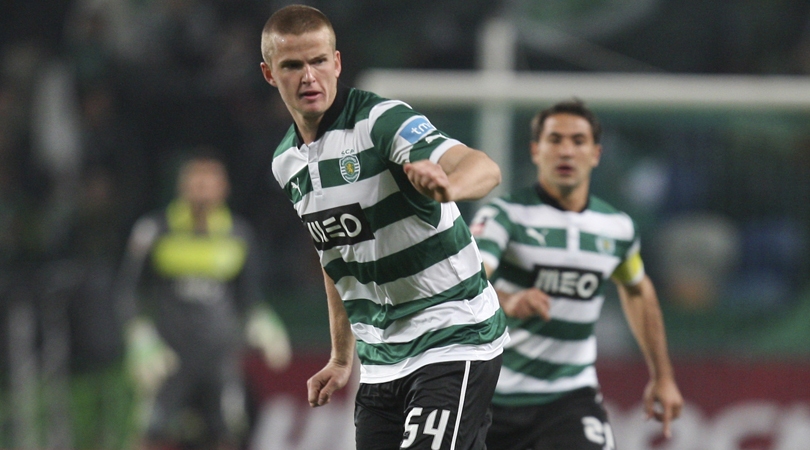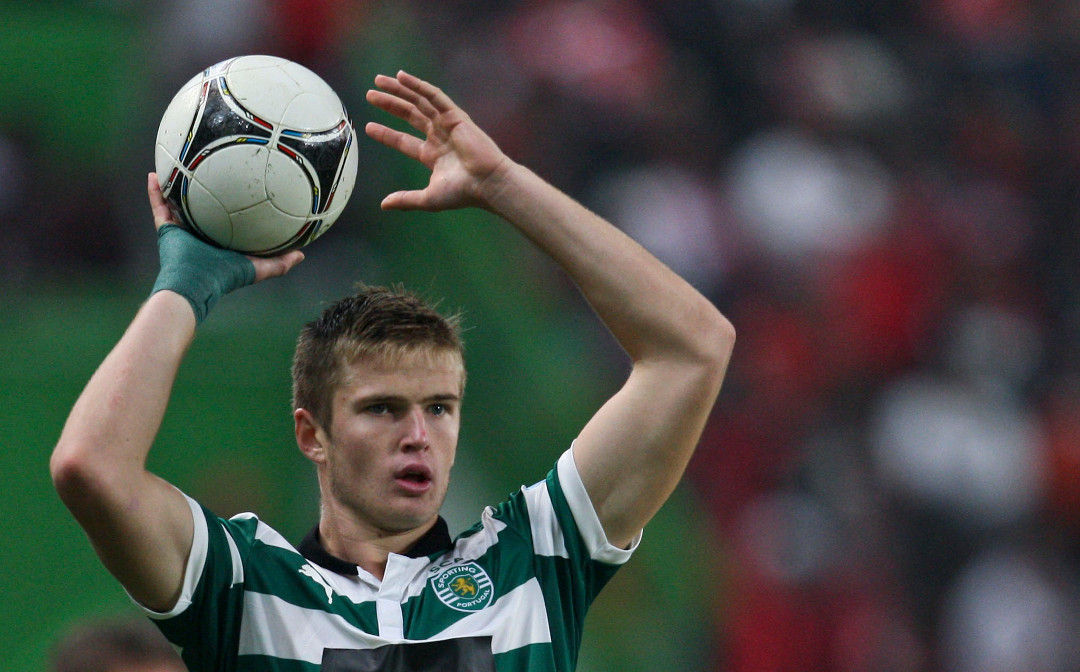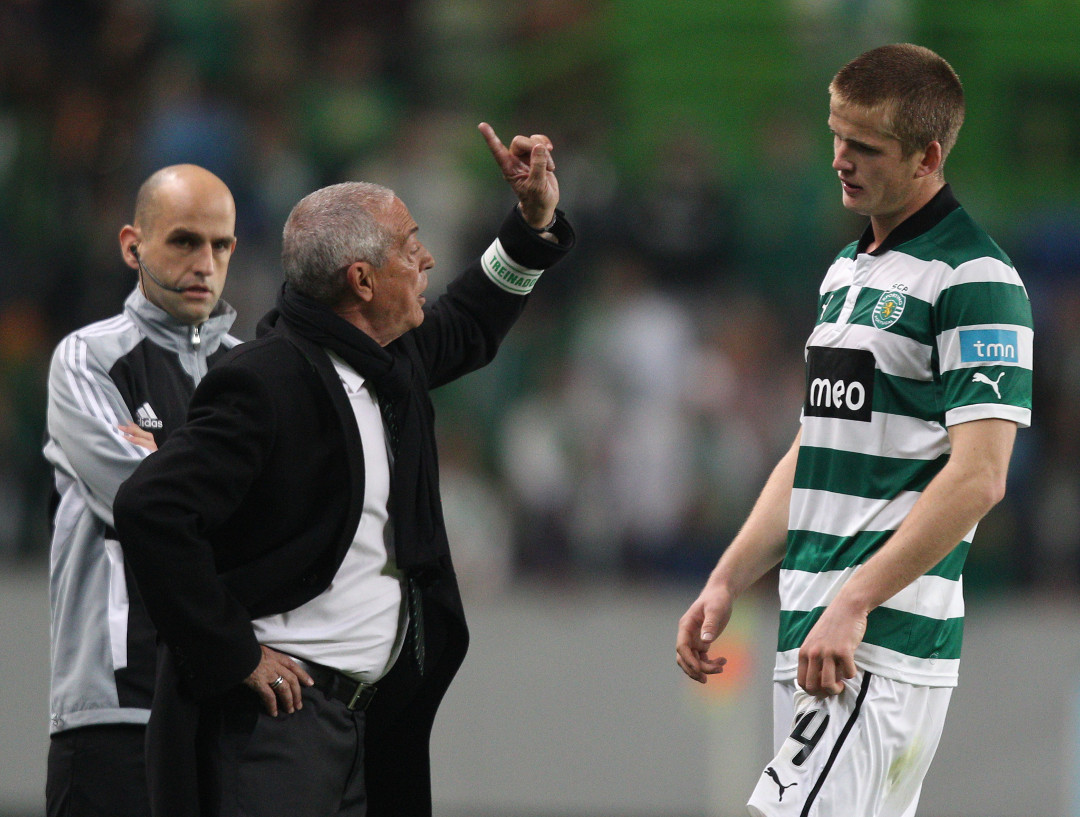How Eric Dier's Portuguese education set him apart from his peers
The versatile Tottenham player has impressed under Mauricio Pochettino and earned his first full England caps. Richard Edwards charts the unorthodox rise of Spurs' flying 21-year-old...

In English football, describing a player as a ‘utility man’ often infers that he’s good in a number of positions but not good enough to make one of those his own.
Full name: Eric Jeremy Edgar Dier
Date of birth: January 15, 1994
Place of birth: Cheltenham, England
Career: Sporting 2003-14 Everton, loan 2011-12, Tottenham 2014-
International: England (2 caps)
In the case of Eric Dier, though, it should be seen somewhat differently. The Tottenham man, who spent the majority of his first Premier League season playing at centre-back and full back, fitted effortlessly into the England midfield for their 2-0 win over France at Wembley last week. He looked to the manor born in a role that showcased that all-too-rare English commodity – being able to keep possession.
He then continued his form against West Ham at White Hart Lane on Sunday, shining in a defensive screening role alongside fellow starlet Dele Alli. “I’m comfortable in this position,” said Dier, after a 4-1 demolition that cemented Spurs’ place in the Premier League’s chasing pack.
For this very modern footballer, though, that should come as no surprise.

Heads up
Dier looked to the manor born in a role that showcased that all-too-rare English commodity – being able to keep possession
BBC 5 live’s 606 programme isn’t traditionally a first port of call when in search of enlightenment but, on Sunday evening, there was a call which caught FFT's ears. On the other end of Kelly Cates’ and Ian Wright’s phone was a player who had spent some time working under Michael Laudrup’s father, Finn, at Copenhagen in the late 1970s. The caller told the story of being chastised by Laudrup Snr for continually shouting ‘man on’ during a training match. "I know there is,” came the Dane’s reply. “I play with my head up, unlike you Englishmen.”
Dier's education in Portugal means he plays in the same way. And although the softly spoken 21-year-old would be far too self-effacing to admit it, his Portuguese upbringing does appear to have imbued in him the same European qualities that Laudrup referred to during that on-pitch conversation all those years ago.
Get FourFourTwo Newsletter
The best features, fun and footballing quizzes, straight to your inbox every week.

Dier’s Portuguese background has occupied plenty of column inches since he arrived back in the country of his birth in the summer of 2014 – but, as he continues to impress for a resurgent Spurs, it’s only now becoming apparent just how valuable the education he received at Sporting was.
He was eight when he first came to the club, a shy English boy with little grasp of the language being spoken by his peers. As would be the case in England – in the playground or on the football pitch – those two realities initially left him on the outside looking in. Those first six months, as a foreigner with his new hometown club, were some of the toughest of his young life.
Mentality and technicality
That notion of keeping the ball, being patient and waiting for your chance would have been foreign to most English players of a similar age. In Portugal, however, it was as natural as breathing
For one of six children, though, Dier was used to having to battle to have his voice heard – and as his Portuguese improved, so did his confidence. Before long he was captaining Sporting's age group sides, barking out instructions to his team-mates in flawless Portuguese.
According to those who saw him play in those formative years, among Dier’s greatest gifts were his composure and precious ability to keep the ball – a trait that Sporting’s coaches ingrained in their charges from an early age.
“Unlike on the park pitches of England on a Saturday and Sunday morning, there were no coaches balling at the youngsters,” a source familiar with Dier's time with the Sporting academy tells FFT. “Players were told things once and expected to learn from it. Likewise, the first question on the return to the Sporting clubhouse after an away match wasn’t ‘did you win?’ but ‘did you play well?’."
That notion of keeping the ball, being patient and waiting for your chance, would have been foreign to most English players of a similar age. In Portugal, however, it was as natural as breathing.
“The surfaces that he played on during his younger years also had a tremendous impact on the way he now plays the game,” said the source. “A lot of Sporting’s youth team matches were played on dirt pitches, the sort of surfaces where you would rip half your leg off if you were brave (or stupid) enough to attempt a slide tackle.”
They were the sort of pitches that would doubtlessly elicit an incredulous, and probably expletive-laden response from any Premier League academy youngster. For Dier, though, this was simply the way things were – and it was an environment he thrived in.
Live-in student
As we get older we don’t do as many training matches, we spend more time concentrating on tactics and positioning
Perhaps the most important element of his development came when he was 14. In Portugal, unlike in England, there is no real tradition of boarding schools or children living away from home. For Dier’s family, though, the travel required to ferry him to and from training at Sporting was becoming more and more difficult. Some tough decisions had to be made.
Dier went to live at the academy, despite the club itself raising the question of whether this was what the family really wanted. Dier would return to the family home, some 45 minutes away, after matches and at weekends. In the meantime, he attended school, lived at the academy where he stayed with other boys whose families didn’t live in Lisbon and completely immersed himself in the country he now called home.
FFT carried out an interview with Dier in 2010, shortly before he appeared in an Umbro advert alongside future England team-mates Wayne Rooney, Joe Hart and Jack Wilshere. He talked us through his daily routine at Sporting.
“I go to school in the morning until late afternoon and we then train between six and eight,” he said. “We’re at pre-season right now but we’re never not working with the football, we do loads of different exercises. But as we get older we don’t do as many training matches, we spend more time concentrating on tactics and positioning.”
That education is not only holding him in terrific stead now, it also helped him carve out a career with the club who had nurtured his talents.
Moving through the ranks
Contrary to popular belief, Dier was never approached by the Portuguese FA to switch allegiances from England to Portugal
He made his debut for Sporting in the Primeira League in November 2012, setting up the winner in a match against Braga. The key to his development, though, came with the appointment of Jesualdo Ferreira, who arrived at the club in January 2013.
Known as the Professor in Portugal, it was Ferreira who had the confidence in Dier to play him in the central midfield role he’s now relishing. The Spurs man only spent six months working with Ferreira, but it was the Professor who went a long way to completing an education that now’s being built on by Mauricio Pochettino.

Contrary to popular belief, Dier was never approached by the Portuguese FA to switch allegiances from England to Portugal. If they had, it’s almost certain that the youngster would have rebuffed their advances in the same way he's been repelling attacks in the Spurs midfield.
Both club and country have every reason to be thankful for that.
